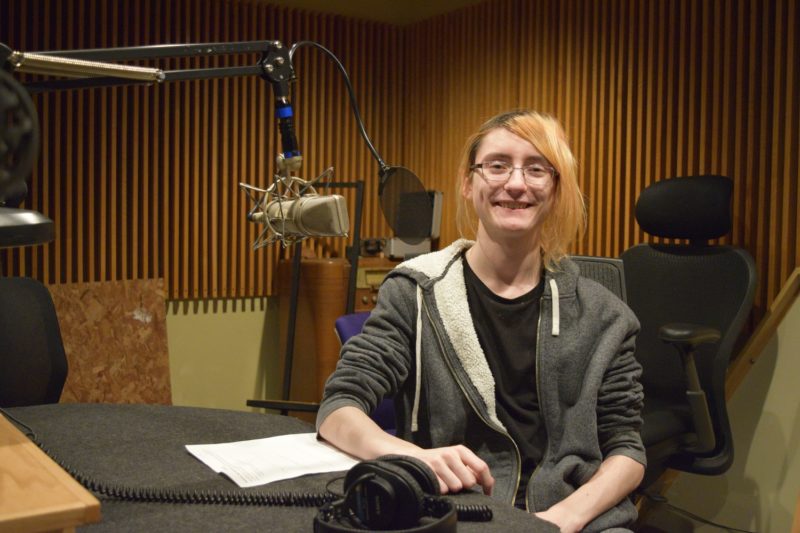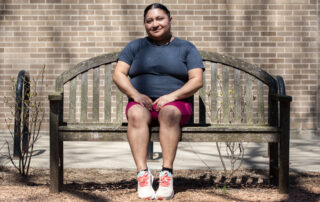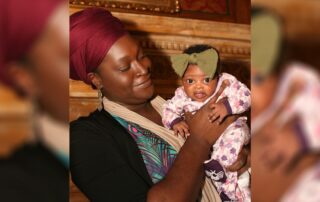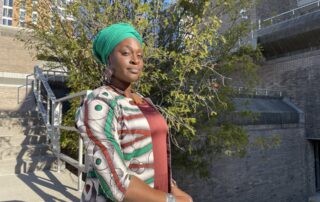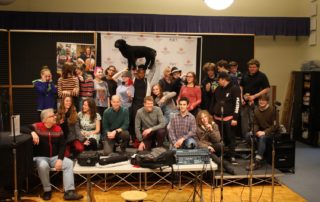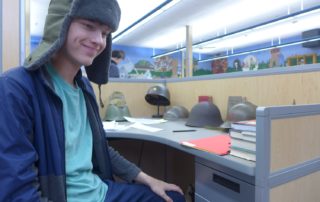Monona Grove Liberal Arts Charter School junior Dante Murray really wants to talk about school. Before he came to MG21 his sophomore year, he struggled at the traditional public school.
“I didn’t really find point in doing a lot of the stuff that they were assigning,” said Dante. “Science and math aren’t really my thing. I’m more into history and writing. At the main high school, I didn’t really get the help I needed. Where at MG21, I feel like I’m getting the help I need with the things I struggle with. I really like that I’m allowed to express myself more whether it be through a writing piece, a research piece or anything in between. I find meaning in it now.”
For his radio story, Dante wanted to explore how small public charter schools differ from traditional public schools. We’re not here to argue for or against the benefits of traditional and non-traditional schools. Every student thrives in different environments. This is just one students experience.
Dante interviewed Jess Frain, a Monona Grove School District social worker and they talked about school systems. Here’s part of that conversation (which has been edited for brevity and clarity):
Dante Murray: What would you say are some of the main flaws of a traditional schooling system?
Jess Frain: As somebody who works in both a traditional setting and a charter setting –so an alternative project based setting — I can see more and more flaws in the traditional setting the longer that I’ve done this dual role staff-wise.
And then for the students I mean, gosh, I could go on and on. I think that the traditional school, to keep it short and sweet, the word tradition is key here. It is made for a time period that we are not in anymore. And so we’re teaching children how to live in a world that’s no longer waiting for them at the end of school, if that makes sense?
Dante: What do you think some of the main benefits of a school like MG21 are?
Jess: I just recently heard this quote at a conference, “In the charter school world, we like to protect the unicorn and not cut off its horn.” And I love that so much because that’s exactly what I see this school do. We celebrate people’s individuality and we encourage it. Not just point it out but it’s like, “OK that’s who you are. Those are your strengths. Let’s use that and move forward.” Instead of cutting the horn off and trying to fit you in a box that’s never going to be you. And then, you’re in a constant battle trying to figure out, “Like why am I not good enough for this? What’s wrong with me?” When no, nothing’s wrong with you, everything’s perfect.
Lastly, I think a charter school like MG21 actually builds intrinsic motivation. Students that thrive in a traditional setting, they are oftentimes the students that want to attain high grades. Those kind of those extrinsic things like, honor roll or scholarships. In a school like this, the rest of the population, you know, they’re not going to get to that point. You lose your motivation then. And at a school like this you actually engage in the curriculum.
If you’re a great artist, that’s going nowhere in geometry class over at the other high school. If you’re a great artist here, then let’s work with that in geometry. Let’s make something happen here. And oftentimes students who are here have had pretty poor experiences of education in the past. So to see that that switch happen, that’s also a big piece of what I love about schools like MG21.
==
After Dante interviewed Jess Frain, WPR’s Maureen McCollum talked with him about his interview.
Maureen McCollum: How did you feel after doing the interview?
Dante Murray: Relieved that an adult, I guess a teacher, shared the exact same opinions on the schooling system that I did.
Maureen: For this project, you decided to do this story on the differences between the public and the charter school. Why?
Dante: Because I feel like normal schools, traditional schools are kind of old fashioned, I guess. It’s just something I was I’m really passionate about in general — this fairness and the relationship between teacher and student and the work that’s done at schools. I feel they aren’t really training people to be their best or putting them up to their fullest potential.
Maureen: Do you feel like there are misconceptions with charter schools?
Dante: Definitely. I know a lot of misconceptions I’ve heard is that my school in particular is for special needs kids, which isn’t true. And I feel like that is kind of a stigma. Also that it’s for violent kids that are troublesome, which is also not true.
Maureen: So for people who don’t know your classmates, what are the students that MG21 like?
Dante: They’re unique. They’re not afraid to be themselves. They’re not afraid to stand out in a crowd and be someone that they truly want to be. They don’t try and fit themselves into little boxes or stress out over little stupid things. They’re just themselves.
==
At the beginning of the school year, Dante recorded another radio story. It was an audio diary entry he wanted to share about his struggles with anxiety.
Despite having a great summer and loving school, Dante had a panic attack earlier in the year. He talks about the impact it had on his family, wanting to go to school, and seeking help.
“No matter what happens. No matter what hardship you’re going through, it will eventually get better,” said Dante. “It always gets better, no matter what.”
Hear from more MG21 students throughout the year on “Wisconsin Life” and on the special, “Classroom Frequency: Student Voices From Wisconsin.”
